Filter by
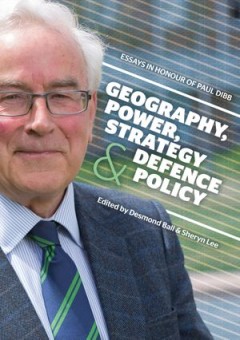
Geography, Power, Strategy And Defence Policy
Paul Dibb AM has had an extraordinary career. He enjoys an international scholarly reputation of the highest order, while at the same time he has done much distinguished public service. He was a pioneer in moving back and forth between posts in government departments, notably the Department of Defence, and academia. He began as a student of Soviet economic geography, and then spent nearly two d…
- Edition
- -
- ISBN/ISSN
- 9781760460136
- Collation
- -
- Series Title
- -
- Call Number
- -
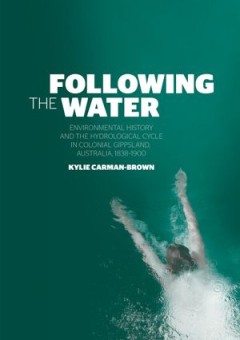
Following The Water
Water reflects culture. This book is a detailed analysis of hydrological change in Australia’s largest inland waterway in Australia, the Gippsland Lakes in Victoria, in the first 70 years of white settlement. Following air, water is our primal need. Unlike many histories, this book looks at the entire hydrological cycle in one place, rather than focusing on one bit. Deftly weaving threads fro…
- Edition
- -
- ISBN/ISSN
- 9781760462840
- Collation
- -
- Series Title
- -
- Call Number
- -
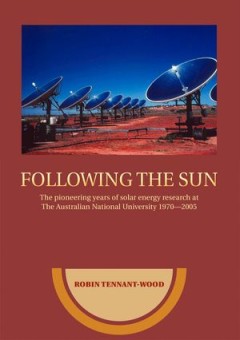
Following The Sun
In 1970 a small group of physicists at The Australian National University decided to veer away from the accepted and expected directions in energy research and pursued the emerging discipline of solar energy. Over the next decade ANU joined a small cluster of research institutions, including the CSIRO, UNSW and the University of Sydney, to emerge as a world leader in solar energy technology. Th…
- Edition
- -
- ISBN/ISSN
- 9781922144126
- Collation
- -
- Series Title
- -
- Call Number
- -
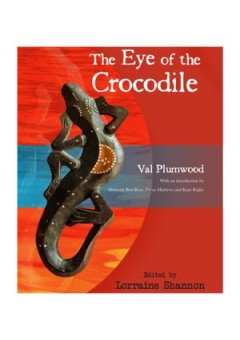
The Eye Of The Crocodile
Val Plumwood was an eminent environmental philosopher and activist who was prominent in the development of radical ecophilosophy from the early 1970s
- Edition
- -
- ISBN/ISSN
- 9781922144164
- Collation
- -
- Series Title
- -
- Call Number
- -
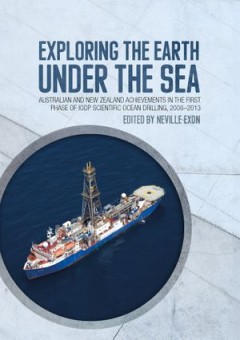
Exploring The Earth Under The Sea
"Exploring the Earth under the Sea brings to life the world’s largest and longest-lived geological research program, which has been drilling over many decades at many locations deep below the ocean floor to recover continuous cores of sediment and rock. Study of these materials has helped us understand how the Earth works now, how it has worked in the past and how it may work in the future. T…
- Edition
- -
- ISBN/ISSN
- 9781760461454
- Collation
- -
- Series Title
- -
- Call Number
- -
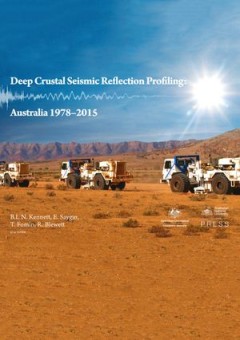
Deep Crustal Seismic Reflection Profiling
Deep Crustal Seismic Reflection Profiling: Australia 1978–2015 presents the full suite of reflection profiles penetrating the whole crust carried in Australia by Geoscience Australia and various partners. The set of reflection data comprises over 16,000 km of coverage across the whole continent, and provides an insight into the variations in crustal architecture in the varied geological domai…
- Edition
- -
- ISBN/ISSN
- 9781760460846
- Collation
- -
- Series Title
- -
- Call Number
- -
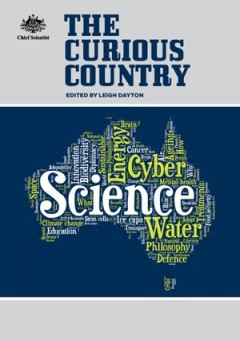
The Curious Country
By definition scientists are an inquisitive lot. But what are the scientific curiosities and concerns on the minds of Australians? What worries them, baffles them, and sets their curiosity meter to 10 out of 10? To find out, the Office of the Chief Scientist (OCS) took the nation’s intellectual temperature, surveying 1186 Australians: men and women aged 18 to 65, from all education levels and…
- Edition
- -
- ISBN/ISSN
- 9781925021363
- Collation
- -
- Series Title
- -
- Call Number
- -
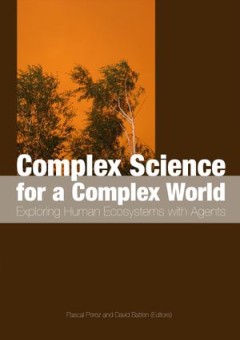
Complex Science For A Complex World
Human ecology; Australia
- Edition
- -
- ISBN/ISSN
- 9781920942397
- Collation
- -
- Series Title
- -
- Call Number
- -
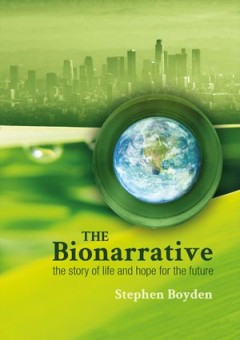
The Bionarrative
This book is for the general reader interested in the human place in nature and the future of civilisation. It is based on the biohistorical approach to the study of human situations. This approach recognises human culture as a new and extremely important force in the biosphere. The book discusses the evolution of life and the essential ecological processes on which all life, including human ci…
- Edition
- -
- ISBN/ISSN
- 9781760460501
- Collation
- -
- Series Title
- -
- Call Number
- -
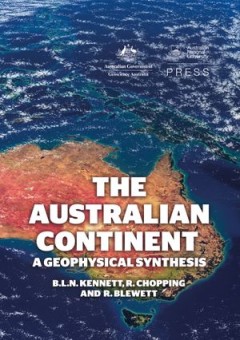
The Australian Continent
The Australian Continent: A Geophysical Synthesis is designed to provide a summary of the character of the Australian continent through the extensive information available at the continental scale, as a contribution to the understanding of Australia's lithospheric architecture and its evolution.The results build on the extensive databases assembled at Geoscience Australia, particularly for pote…
- Edition
- -
- ISBN/ISSN
- 9781760462468
- Collation
- -
- Series Title
- -
- Call Number
- -
 Computer Science, Information & General Works
Computer Science, Information & General Works  Philosophy & Psychology
Philosophy & Psychology  Religion
Religion  Social Sciences
Social Sciences  Language
Language  Pure Science
Pure Science  Applied Sciences
Applied Sciences  Art & Recreation
Art & Recreation  Literature
Literature  History & Geography
History & Geography